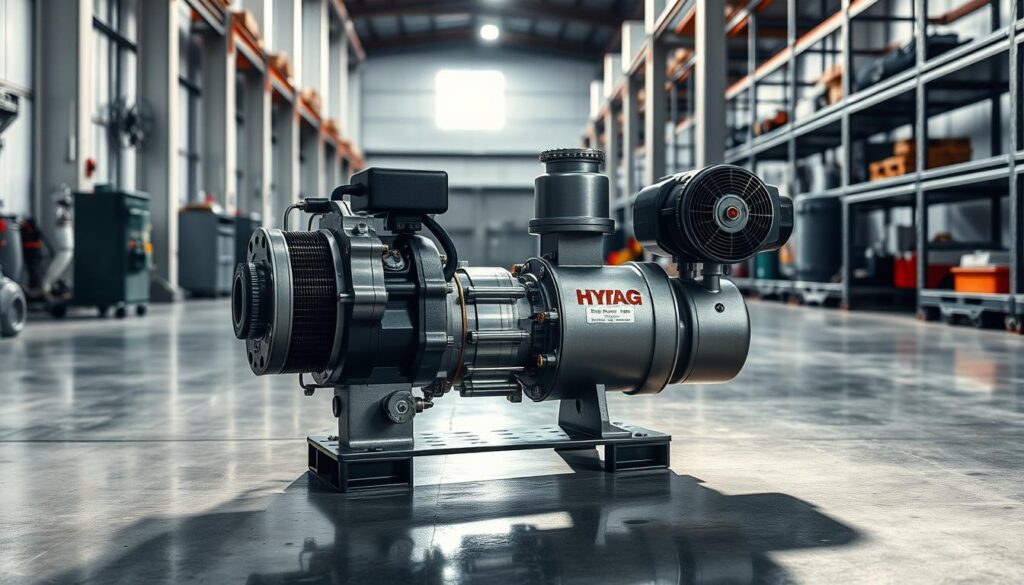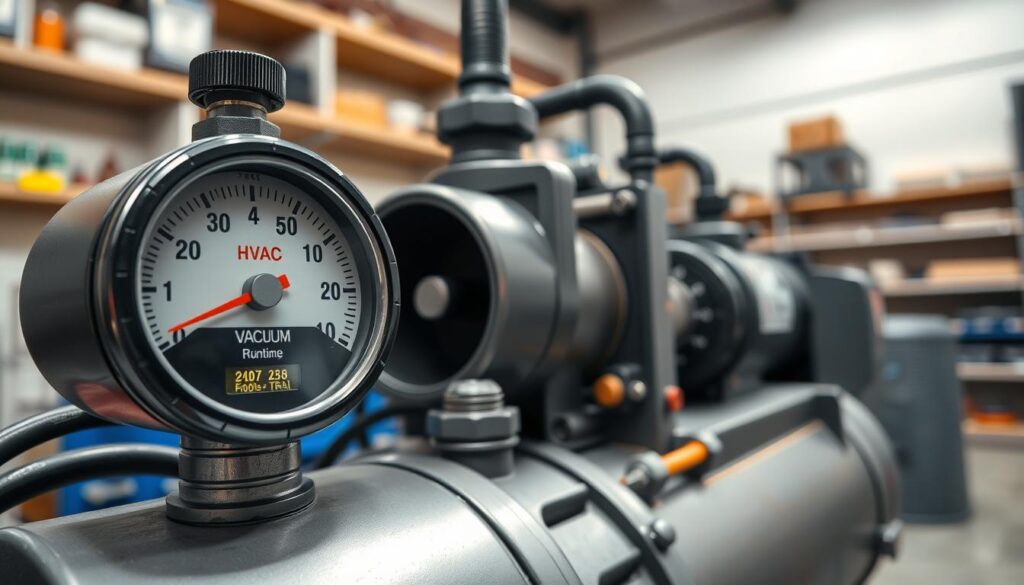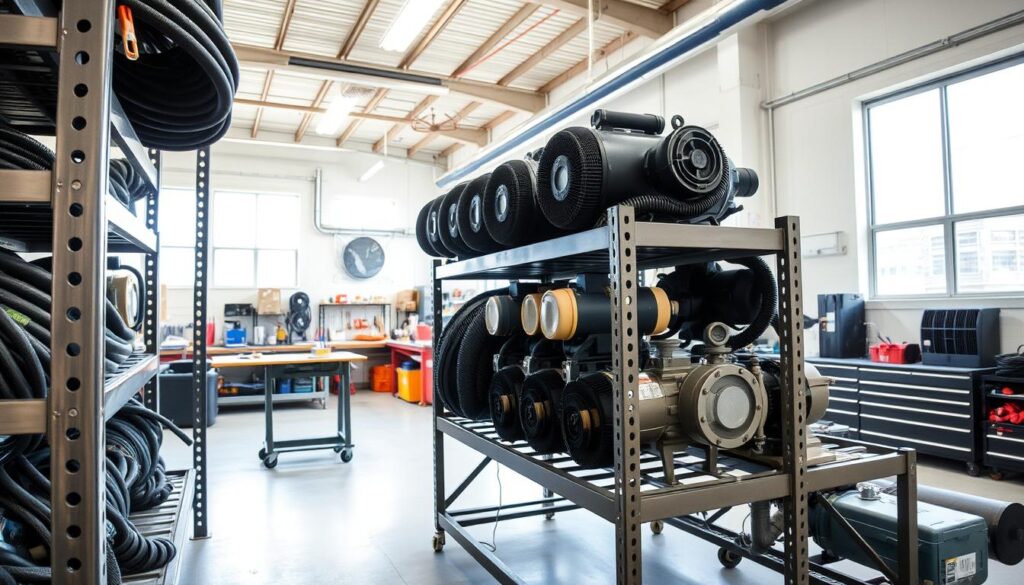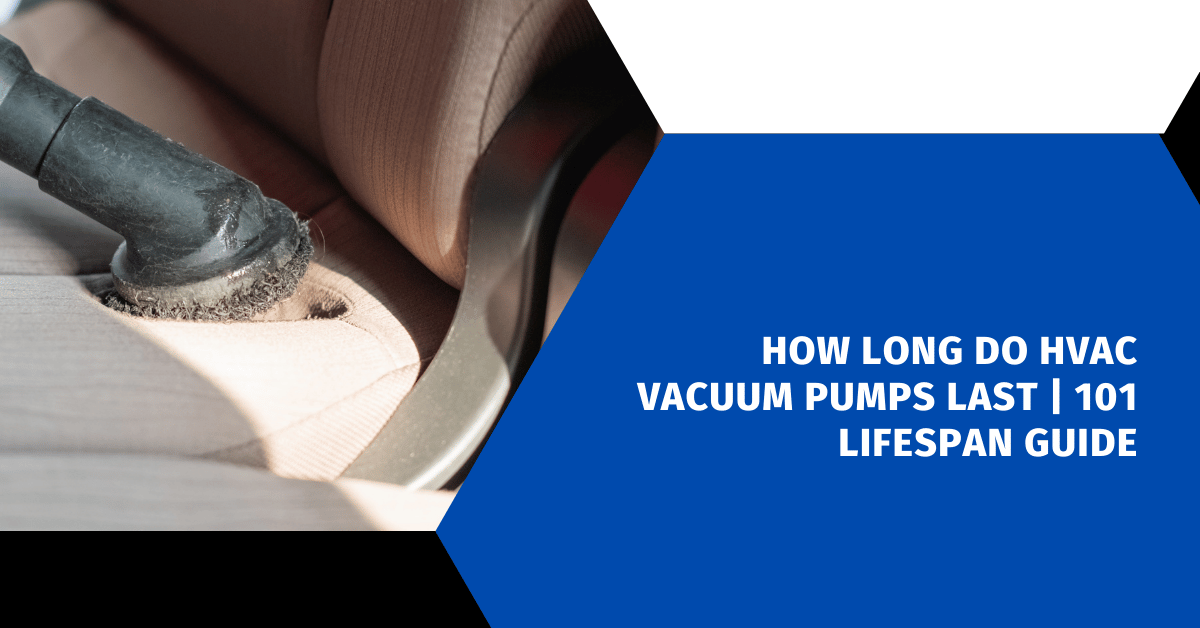Affiliate Disclosure
HVAC Guide Guys is a participant in the Amazon Services LLC Associates Program, an affiliate advertising program designed to provide a means for sites to earn advertising fees by advertising and linking to Amazon.
How Long Do HVAC Vacuum Pumps Last? Ever thought about how long an HVAC vacuum pump lasts? Knowing this can save you a lot of money and avoid big system problems.

HVAC vacuum pumps are key to keeping systems running well. How long they last depends on many things. This includes how well they are maintained, their working conditions, and how much they are used.
Experts in HVAC say that taking good care of these pumps can make them last longer. They point out that regular upkeep and smart management are key to their long life.
Key Takeaways
- HVAC vacuum pump lifespan depends on multiple environmental and operational factors
- Regular maintenance can dramatically extend pump performance
- Professional servicing is key for long-term reliability
- Performance decline means it might be time for a new pump
- Knowing how they work helps guess how long they’ll last
Table of Contents
Understanding HVAC Vacuum Pump Basics
Vacuum pumps are key in HVAC systems. They remove air and moisture from refrigeration circuits. Knowing how they work is important for keeping them running well and for maintenance.
These machines work in different pressure ranges. They help systems perform at their best by creating the right negative pressure.
Key Components of Vacuum Pumps
Vacuum pumps have several important parts:
- Intake valve system
- Compression mechanism
- Oil lubrication system
- Exhaust mechanism
- Cooling elements
Types of HVAC Vacuum Pumps
There are different types of vacuum pumps for HVAC needs:
- Oil-sealed rotary vane pumps: Good for standard refrigeration
- Scroll pumps: Best for precise evacuations
- Diaphragm pumps: Great for clean, oil-free areas
- Two-stage vacuum pumps: Reach deeper vacuum levels
Primary Functions in HVAC Systems
Vacuum pumps do several important jobs in HVAC systems:
- Removing non-condensable gases
- Getting rid of moisture from refrigeration circuits
- Preparing systems for the best refrigerant charge
- Stopping system contamination
Knowing these basics helps you get the most out of your vacuum pump. It also helps you keep it running well with the right maintenance and use.
How Long Do HVAC Vacuum Pumps Last
Knowing how long HVAC vacuum pumps last is key to keeping your heating and cooling systems running well. A well-cared-for vacuum pump can last from 7 to 15 years. This depends on several important factors.
When looking into how long hvac vacuum pumps last, experts look at a few key things:
- How often it’s used
- The quality of its maintenance
- The environment it’s in
- The pump’s quality and who made it
Oil-filled rotary vane pumps usually last the longest. They are known for being durable and reliable. Regular oil changes and proper storage can make your pump last even longer.
For home HVAC systems, a pump with a CFM rating between 3 and 6 works well. Two-stage vacuum pumps are often chosen by pros. They can handle more complex systems and reach deeper vacuum levels, possibly lasting longer than single-stage pumps.
Proper maintenance is the key to maximizing your HVAC vacuum pump’s lifespan.
Remember, commercial vacuum pumps might not last as long as those for homes. Regular checks, clean oil, and following the maker’s advice can help your pump last longer.
Explore Our HVAC Shop
Looking for top-rated HVAC tools, parts, and accessories? Visit our shop and find the perfect solution for your needs.
Visit the ShopFactors Affecting Vacuum Pump Lifespan
Knowing what affects your hvac vacuum pump’s life can help you keep it running well. The lifespan of your vacuum pump depends on many things. These factors need attention and action to keep your equipment in top shape.
Several key factors directly influence the operational life of your vacuum pump:
- Usage frequency and intensity
- Environmental conditions
- Quality of hvac vacuum pump maintenance
Usage Patterns Matter
How you use your vacuum pump affects its life. Running it too much can make it wear out faster. But, using it wisely and giving it breaks can help it last longer.
Environmental Considerations
The place where your vacuum pump works is very important. Bad conditions like very hot or cold temperatures, lots of dust, or harmful gases can shorten its life. Keeping your pump safe from these dangers is key to its good working.
Maintenance: The Key to Longevity
Keeping your vacuum pump well-maintained is the most important thing for its long life. A well-cared-for pump can last up to 30 years, unlike neglected ones that don’t last as long. Important maintenance steps include:
- Regular oil changes
- Filter inspections
- Performance monitoring
- Timely component replacements
Regular maintenance not only makes your pump last longer but also saves you from expensive repairs and keeps it working smoothly.
Explore Our HVAC Shop
Looking for top-rated HVAC tools, parts, and accessories? Visit our shop and find the perfect solution for your needs.
Visit the ShopSigns of Vacuum Pump Wear and Deterioration

Spotting wear early is key for fixing hvac vacuum pump issues. Your pump shows signs of trouble through different signals. These need quick action.
Important signs of pump wear include:
- Unusual Noises: Clicking, grinding, or high-pitched sounds mean internal problems
- Temperature Fluctuations: Big temperature rises can mean metal contact or bearing failures
- Oil contamination or too much leakage
- Less pumping power
- Visible wear on pump parts
When you maintain your hvac vacuum pump, watch certain performance signs. A vacuum level under 20-29″Hg or a pressure drop rate over 2% per hour means trouble.
Look out for these warning signs:
- Vane cupping or sticking
- Oil separator getting too full
- More energy use
- Breakers keep tripping
Experts say to check it out fast if you see many signs. This stops big failures and costly fixes.
Explore Our HVAC Shop
Looking for top-rated HVAC tools, parts, and accessories? Visit our shop and find the perfect solution for your needs.
Visit the ShopEssential Maintenance Practices for Longevity
Keeping your HVAC vacuum pump in top shape is key. A good maintenance plan can make it last longer and save you money. Regular checks are vital for it to work well and reliably.
Maintaining your hvac vacuum pump needs a plan. It should cover different times and needs. This way, you can avoid sudden failures and keep your system running smoothly.
Daily Inspection Routines
Start your day with a quick check. Look for any damage, check the oil, listen for odd sounds, and make sure it’s in the right temperature.
Weekly Maintenance Tasks
Weekly checks are important to catch problems early. Clean the outside, check the electricals, look for worn belts, and test the system’s pressure.
Monthly Service Requirements
Monthly, do deeper maintenance to stop long-term damage. Clean or replace filters, check the oil, test the system, and adjust sensors.
Regular maintenance can cut repair costs by half and extend your pump’s life. Getting a pro to check it yearly can also keep it running better and avoid surprises.
Proper Oil Management and Maintenance
Managing oil in your HVAC vacuum pump is key for top performance and longer life. The right oil strategy boosts your equipment’s reliability and efficiency.
Understanding oil’s role is the first step in good maintenance. Quality oil guards against wear, cuts down on friction, and keeps parts safe.
- Replace oil after each use for maximum performance
- Use manufacturer-recommended oil grades
- Check oil quality regularly
- Maintain clean oil storage conditions
Different refrigerant systems need their own oil plans. For example:
| Refrigerant Type | Recommended Vacuum Level | Oil Change Frequency |
|---|---|---|
| R22 Systems | 500 microns | Every 50-100 hours |
| R410A Systems | 250 microns | Every 40-75 hours |
“A well-maintained vacuum pump is the heartbeat of efficient HVAC service.” – HVAC Professional Insight
Today’s vacuum pumps have cool designs like dual-layer baffle systems. These cut down on oil spray and upkeep time. With strict oil care, you can dodge sudden breakdowns and make your gear last longer.
Pro Tip: Always drain oil through dedicated valves and inspect for contaminants during each change.
Explore Our HVAC Shop
Looking for top-rated HVAC tools, parts, and accessories? Visit our shop and find the perfect solution for your needs.
Visit the ShopOperating Conditions and Performance Optimization
To make your HVAC vacuum pump last longer, pay close attention to how you use it. The right settings and care can really help your pump work better and last longer.
Knowing what makes your vacuum pump work best is key. Its performance depends on several important factors. These need to be watched and controlled closely.
Temperature Control Guidelines
Keeping the right temperature is important for your vacuum pump. It should be between 60-80°F. Here are some tips:
- Avoid extreme heat or cold environments
- Ensure proper ventilation around the pump
- Use thermal overload protection features
- Monitor ambient temperature consistently
Pressure Management
Managing pressure well is key for your vacuum pump’s life. Experts suggest:
- Maintaining vacuum levels below 1000 microns
- Targeting 200-500 microns for critical applications
- Using 2-stage vacuum pumps for deeper, more efficient performance
Load Optimization
Make sure you’re not overloading your vacuum pump. For homes, use 4-5 CFM. For businesses, 6-8 CFM is better. These steps help avoid damage and extend your pump’s life.
Proper management of operating conditions can potentially increase your vacuum pump’s lifespan by 30-50%.
Explore Our HVAC Shop
Looking for top-rated HVAC tools, parts, and accessories? Visit our shop and find the perfect solution for your needs.
Visit the ShopVacuum Pump Storage and Protection

Keeping your HVAC vacuum pump safe during storage is key to its long life and good performance. The right storage methods can make your equipment last longer and avoid damage.
Before you store your vacuum pump, follow these important steps for good maintenance:
- Clean the pump well to get rid of dust or debris
- Drain the old oil and put in new oil as the maker suggests
- Use a dust cover to protect the pump
- Keep it in a place that’s dry and has a steady climate
The environment where you store your pump matters a lot for its life. The best places to store it should have:
| Storage Condition | Recommended Parameters |
|---|---|
| Temperature | 60-75°F (15-24°C) |
| Humidity | Less than 50% |
| Protection | Dust-free, covered area |
For long storage, you need to pay extra attention. Run the pump now and then to keep parts moving and seals moist. Use silica gel packets to keep moisture away and stop corrosion.
By using these storage tips, you can keep your investment safe. Your HVAC vacuum pump will stay in top shape, ready to go when you need it.
Troubleshooting Common Issues
Fixing HVAC vacuum pump problems needs a careful plan. Spotting issues early can save money and keep your equipment running longer.
Experts say to follow these steps to find and fix vacuum pump issues:
- Listen for odd noises that might mean something’s wrong mechanically
- Look for unusual vibrations when it’s running
- Watch the vacuum pump’s pressure levels
- Check for leaks at key connection points
Some common issues that need quick action during hvac vacuum pump repair are:
- Excessive Noise: This could mean worn-out bearings or damaged parts inside
- Reduced Pumping Speed: This might show that seals are failing or there’s a lubrication issue
- Overheating: This could be due to blocked airflow or dirty oil
- Pressure Inconsistencies: This might point to leaks or mechanical problems
Using energy-saving monitoring systems can catch problems early. Regular upkeep usually cuts down repair costs and stops major breakdowns.
Remember: Proactive maintenance is always more cost-effective than reactive repairs.
When you’re fixing your HVAC vacuum pump, safety first. Always get help from experts for tricky issues that go beyond simple upkeep.
Explore Our HVAC Shop
Looking for top-rated HVAC tools, parts, and accessories? Visit our shop and find the perfect solution for your needs.
Visit the ShopReplacement vs Repair Considerations
Choosing between repairing or replacing your HVAC vacuum pump is tough. It depends on several things like how well it works, the cost, and how long it lasts. Knowing when to replace or repair can save you a lot of money and avoid system failures.
Cost Analysis: Making the Smart Financial Decision
Money matters a lot when you decide. Keep these points in mind:
- Repair costs usually range from $150 to $1,500
- Installing a new system can cost between $3,000 to $7,000
- Extended warranties can cost from $300 to $1,000
Performance Degradation Signs
Spotting early signs can help you decide quickly. Look out for these signs:
- Decreased operational efficiency
- Unusual noises during operation
- Increased energy consumption
- Frequent breakdowns
When to Upgrade Your Vacuum Pump
Upgrading might be smarter in some cases. Consider replacing if:
- The pump is over 10-15 years old
- Repair costs are more than 50% of a new pump’s price
- System efficiency has dropped a lot
| Decision Factor | Repair | Replace |
|---|---|---|
| Age of System | Under 10 years | Over 10 years |
| Repair Cost | Less than 50% of new system | More than 50% of new system |
| Performance | Moderate efficiency | Significant efficiency loss |
Regular maintenance can often stop expensive replacements. Keeping up with inspections and repairs can make your HVAC vacuum pump last longer and work better.
Professional Maintenance Services
Getting your HVAC vacuum pump checked by experts is key to keeping it running well. Certified technicians have the skills to spot problems early, saving you money. They spend 1-2 hours checking your system thoroughly.
Proper care can make your vacuum pump last longer. Experts can stop 70% of system failures caused by bad maintenance. They check refrigerant levels, oil moving parts, and do detailed checks to cut down wear by 30%. Getting your pump checked by pros can save you $500 to $1,000 a year.
Most makers say you should get your pump serviced every year to keep the warranty valid. Technicians clean parts, look for issues, and make sure your system works great. A well-kept pump can be 95% efficient, saving energy and lasting longer.
Regular maintenance by pros keeps your investment safe and your pump working best. The cost, $75 to $200 per visit, is worth it to avoid big repairs and extend your system’s life by 5 to 10 years.

